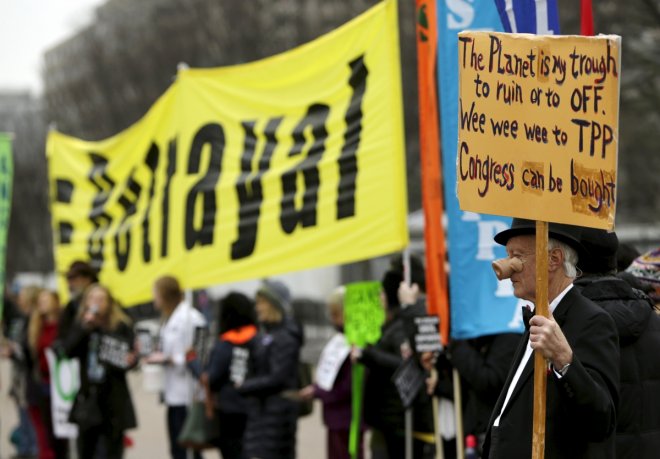
If US president-elect Donald Trump pulls his country back from the Trans-Pacific Partnership (TPP) when he assumes office, the risks for the global trading and strategic system will be high, Singapore Prime Minister Lee Hsien Loong said.
The rest of the world will be able to manage the impact from a US decision to embark an era of trade protectionism, but the scenario will be one of missed opportunities, Lee said.
Speaking at the Apec CEO Summit on Friday, Lee noted that the US has been the biggest and most open market in the world for long and a growth engine to the world economy.
"It's not only missing out on the positive, but risking a very big negative in terms of destabilising the global trading and strategic system," Lee said, according to the Channel News Asia.
With Trump shunning the TPP, which was a key element in President Barack Obama's east-pivot diplomacy and a purported means to block China's overriding influence in the region, the focus is now on Beijing's increasing role in a world without the trans-pacific trade deal.
China's alternative treaty, the Regional Comprehensive Economic Partnership (RCEP) that excludes the Americas, has already received significant regional backing.
Prime Minister Lee said it was right for China to engage with the world in order to facilitate economic integration among the neighbors. Lee noted that the era of any single country assuming the sole lead role is over.
"Nowadays, however strong an economy is, not all roads will lead only there. There will be other links between countries in Asia, with America, with Europe, and China will fit into this global network," Lee said, adding that the "new world" will have "no country which is the middle kingdom".
Lee said Singapore will continue to be a business-friendly country. "I'll make two complementary, almost contradictory points. One, you must have stability. When somebody makes an investment, he's committing to you for 20, 30, 40 years. He comes in on certain expectations. You must make it quite clear right at the start what those expectations should be, and you have to honour your word, over many terms of government," Lee said.
TPP,aimed at radically liberalizing trade between 12 Pacific rim countries, and would have covered around 40 percent of the world economy, has to be ratified by all member countries. While the US would make the most gains from the pact, Japan, Malaysia and Vietnam will also get substantial benefits. In US, some economists say the pact will lead to a $131 billion jump in real incomes annually.








